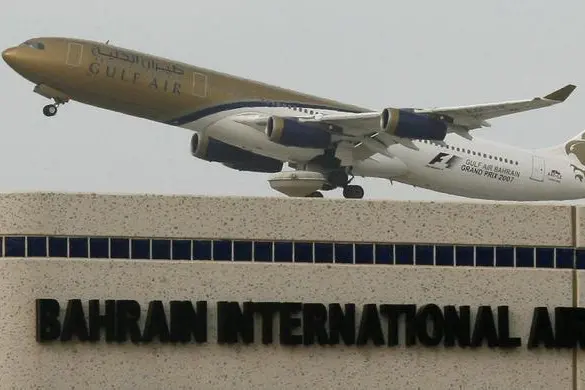PHOTO
Gulf Air is currently running at 80 per cent seat load factors having achieved 80pc restoration of 2019 levels in terms of passenger numbers, the airline’s chief executive has said.
Addressing a Press conference on the sidelines of the International Air Transport Association (IATA) World Passenger Symposium at the Gulf Hotel Bahrain, Convention and Spa, Captain Waleed Al Alawi said yesterday that it was heartening to see the recovery of the aviation sector gaining momentum after the difficult years of the Covid-19 pandemic, despite headwinds like high inflation, high fuel prices and the conflict in Ukraine.
The top official said he was in agreement with IATA’s expectation of the overall industry getting back to 2019 levels by 2024.
The load factor is a metric used in the airline industry that measures the percentage of available seating capacity that has been filled with passengers.
Declining to provide details on the upcoming launch of new destinations, Capt Al Alawi said Bahrain’s national carrier was on track with expansion plans in keeping with its boutique strategy
“We are going to see a resumption in deliveries of the Airbus A320neo jets and Boeing 787-9 Dreamliners we had ordered earlier, with at least one narrow-body jet joining the fleet this year and more to come next year. This would enable the launch of several new destinations next year,” he said.
The airline has added Milan, Rome, Manchester and Nice to its summer schedule this year and also announced operations to Mykonos and Santorini in Greece, Malaga in Spain, Sharm Al Sheikh and Alexandria in Egypt, and Salalah in Oman.
Capt Al Alawi was also hopeful of a correction in airfares, which have shot up recently, saying he expected an early end to the conflict in Ukraine which would bring down the price of jet fuel.
He also emphasised that aviation is an integral part of the economy of Bahrain and reconnecting the world again is a key element of Gulf Air’s strategy.
Also addressing the Press conference was Willie Walsh, director general of IATA, who highlighted the devastating impact of the pandemic noting that at the end of 2022, the industry will have lost around $190 billion during the three years.
He said the industry needed to learn from its failings during the pandemic where a lack of harmonisation in travel rules and procedures led to a delay in recovery of air traffic.
“Travel during Covid-19 was complex, cumbersome and time-consuming due to government-imposed travel requirements,” he explained.
“Like any business, airlines are most successful when they meet customer expectations. Global standards help to facilitate this. The challenge is ensuring the standards keep pace with technology-driven innovations and evolving customer demands around digital.
“Air travellers expect transparency wherever they shop for fares, and other airline products, customised offers; bag tracking and contactless processing at airports. They expect technologies like biometric identification and smartphones to shorten wait times,” Mr Walsh explained.
The three-day symposium running until tomorrow under the theme ‘Unlocking Value Creation by Putting the Customer First’ features speakers from local government, airline senior leaders and industry experts exchanging knowledge and expertise towards the future of the industry during the post-pandemic phase.
© Copyright 2022 www.gdnonline.com
Copyright 2022 Al Hilal Publishing and Marketing Group Provided by SyndiGate Media Inc. (Syndigate.info).





















